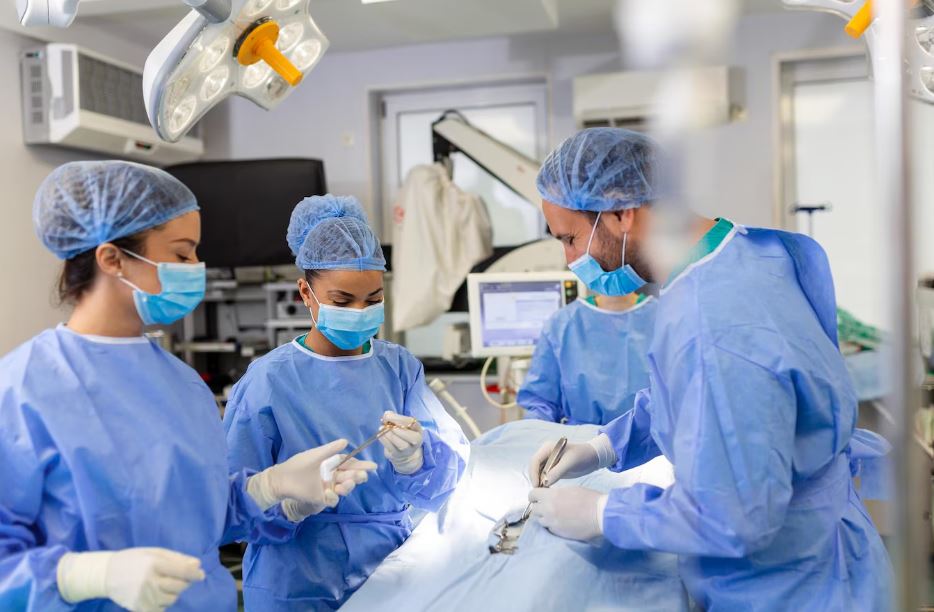
Bradley Stoke Surgery has gradually changed over the past few years from a neighborhood general practitioner office to a vibrant example of how contemporary primary care is adjusting to rising demand, technological disruption, and changing social norms. The surgery’s attempts to strike a balance between innovation and accessibility, despite being located in one of Bristol’s fastest-growing suburban communities, provide both encouraging indications and sobering reminders of the work that remains.
The surgery strives to provide patients with a comprehensive range of services, including antenatal care, mental health triage, and clinics for people with diabetes and asthma. Numerous services, like the cervical screening program and the myCOPD digital coaching, are blatant examples of how prevention and patient empowerment are still at the core of their goals. For example, the myCOPD app is very flexible and lets users log daily activity, get expert-led advice, and practice inhaler technique from the comfort of their own home.
Key Information About Bradley Stoke Surgery
| Detail | Information |
|---|---|
| Name | Bradley Stoke Surgery |
| Address | Brook Way, Bradley Stoke, Bristol, BS32 9DS, United Kingdom |
| Phone | +44 1454 616262 |
| Website | bradleystokesurgery.nhs.uk |
| CQC Rating | Good (based on the latest Care Quality Commission report) |
| NHS Status | Currently welcoming new patients |
| Opening Hours | Monday to Friday, 8:00 AM – 6:30 PM |
| Primary Services | General practice, chronic care clinics, vaccinations, mental health support |
| Digital Access Tools | NHS App, Patient Access, medical record viewing |
| Notable Partnerships | myCOPD program, South Glos carer support, NHS screening campaigns |
Surgery like this one has had to rethink its role in the last ten years, not only as clinical centers but also as a means of promoting autonomy. This change is reflected in Bradley Stoke’s slow adoption of technologies like Patient Access and NHS App integration. Online appointment scheduling, medication management, and access to comprehensive medical records are now all available to patients. When these systems function properly, the outcome is extremely efficient. One customer complimented the staff for expeditiously conducting a blood pressure check and mentioned how they were made to feel valued and heard during the visit.
However, patient reviews indicate that the digital model’s execution is still uneven in spite of these capabilities. Many comments point to unanswered email complaints, hurried consultations, or a failure to follow up on phone inquiries. Although the staff is generally regarded as courteous, some users’ confidence has obviously been damaged by the occasional communication breakdowns and appointment confirmation delays. Even though these problems are probably related to increased demand and administrative stress, they have unintended consequences that damage public confidence.
Timely intervention is essential for health issues that are in their early stages. One patient described how, during a particularly trying period, a mental health consultation offered prompt support. Such prompt, caring care has the power to change lives. The surgery has developed into a crucial first step for people dealing with anxiety, panic attacks, or mood disorders thanks to strategic partnerships with NHS mental health initiatives. This is a particularly significant offering in post-pandemic Britain, where psychological well-being is receiving more attention.
Bradley Stoke Surgery also recognises the emotional labour that is frequently concealed in family care by working with neighbourhood initiatives such as the carers group led by Sian Erickson. Erickson’s involvement offers grounded empathy to a demographic that frequently feels ignored, thanks to his decades of NHS experience in child protection and palliative care. Integrating such social care models is especially creative for medium-sized practices—creating links between community resilience and clinical treatment.
The operation was crucial to local vaccination campaigns during the height of the COVID-19 pandemic. Their dedication to promoting public health has significantly improved over time, as evidenced by the continued regular availability of childhood vaccinations, flu shots, and pneumococcal vaccines. But problems still exist. Cervical smear tests are encouraged by the practice, but a startlingly high percentage of eligible women continue to postpone or forego them. Awareness alone is insufficient in this situation because social stigma, discomfort, and scheduling conflicts all intersect. Additionally, timely and encouraging efforts are required.
A general practitioner’s office becomes more than just a place of care for many patients; it becomes a source of continuity in their lives. Bradley Stoke’s policy of assigning a named general practitioner to each patient is a considerate move. It makes an effort to recover that individual thread that is frequently lost in bigger, more automated systems. Patients can still see any doctor, but it gives them comfort and a sense of familiarity to know that someone knows their medical history.
However, the experiences of patients continue to be remarkably diverse. Others, like Nigel Bird, complain about “nice staff, nice people,” while others express displeasure at being ignored or hung up on following formal complaints. Not just here, but throughout the UK, this inconsistency—particularly in communication—is one of the most persistent issues. Many general practitioner practices have found it difficult to return to their pre-pandemic levels of responsiveness since the outbreak. Furthermore, although the implementation of online systems was intended to simplify access, it has occasionally caused confusion, particularly for elderly individuals or those without consistent internet access.
Bradley Stoke surgeries are under tremendous pressure in light of changing policy and growing public expectations. The goal of NHS England’s emphasis on digital first care and expedited referral procedures is to minimize clinical time and appointment backlogs. However, it can occasionally feel like the human element has been sacrificed for patients who are caught in the transition. A series of online forms and ambiguous callbacks have replaced the once-familiar routine of calling the surgery, talking to a familiar receptionist, and walking in to discuss a concern.
Selected Patient Reviews of Bradley Stoke Surgery
| Reviewer | Date | Summary of Review | Sentiment |
|---|---|---|---|
| Nigel Bird | Recent | “Nice staff, nice people.” | Positive |
| Nikki P H | Recent | “I felt like the doctor hung up on me when I hadn’t finished the query fully.” | Negative |
| Lisa Ward | Recent | “I wrote to the manager months ago, and he has ignored me.” | Negative |
| Anonymous User | Ongoing | “Accessing digital services is confusing and I still didn’t get a callback after submitting the form.” | Negative |
| Patient (Google) | Recent | “Mental Health Practitioner helped me during a very stressful period. Great support.” | Positive |
| Reviewer (FB) | Recent | “Receptionist was kind but couldn’t book me in. Told me to fill an online form instead.” | Mixed |
| Local Parent | Ongoing | “Child immunisation process was efficient, but nurse seemed rushed.” | Mixed |
| Diabetic Patient | Past Year | “Diabetic clinic nurse took time to explain everything. Very reassuring.” | Positive |
| New Patient | Recent | “Easy registration process. GP was attentive. Good experience overall.” | Positive |
| Elderly Patient | Past Month | “Had trouble with NHS App. Couldn’t get help via phone either.” | Negative |
The surgery has made small adjustments to improve the user experience in spite of these worries. A forward-thinking approach is demonstrated by their monthly carers support group, active child health drop-in sessions, and recently updated NHS Health Check offering. For vulnerable groups of people, these are more than just services; they are lifelines. The practice is helping people to intervene early and, in many cases, avoid emergency care later on by proactively offering checks for heart disease, kidney function, and stroke risk in patients aged 40 to 74.
Such offerings are increasingly visible to public health advocates and celebrities alike. The significance of digital health records and preventative care has been emphasized more and more by TV personalities such as Dr. Ranj Singh and Davina McCall. These themes connect Bradley Stoke Surgery to a larger story in which proactive, technologically assisted care is now expected rather than a luxury.
Bradley Stoke Surgery has demonstrated its adaptability through continued collaborations, enhanced systems, and an increasing focus on mental and long-term condition support. However, its biggest challenge and greatest opportunity as it develops further will be consistency. The practice’s goal of providing prompt, courteous, and thorough care to all patients, regardless of their circumstances, must be upheld in the face of growing demand.
